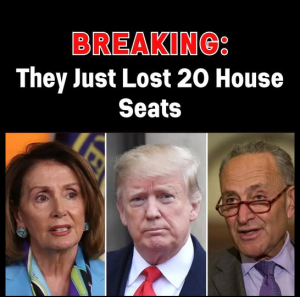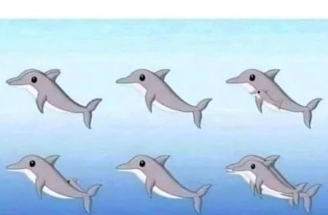The Coming Political Earthquake: How America’s Great Migration Could Reshape Presidential Elections Forever
In the quiet churn of moving vans and new zip codes, a revolution is unfolding. It’s not televised, not shouted from podiums, but it is reshaping the very foundation of American democracy. The great migration of Americans—from blue states to red, from cities to suburbs, from coasts to heartlands—is more than a demographic shuffle. It’s a political earthquake in slow motion, and its aftershocks may redefine presidential elections for generations.
🗺️ A Nation on the Move
Since the pandemic, millions of Americans have relocated in search of affordability, safety, and ideological alignment. California, New York, and Illinois have seen significant population declines, while states like Texas, Florida, Arizona, and Tennessee have welcomed a flood of newcomers. But this isn’t just about cost of living—it’s about cultural belonging and political identity.
Many of these movers are not passive transplants. They bring with them deeply held beliefs, voting habits, and expectations for governance. And as they settle into new communities, they begin to reshape the political landscape—not just locally, but nationally.
🔄 The Red-to-Purple Shift
Take Texas, long considered a Republican stronghold. The influx of younger, more progressive voters from California and the Northeast has begun to tilt urban centers like Austin, Dallas, and Houston toward the left. In 2020, Joe Biden came closer to winning Texas than any Democrat in decades. Similarly, Georgia flipped blue in the presidential race and Senate runoffs, thanks in part to migration and grassroots mobilization.
This shift isn’t uniform. Florida, despite its own influx of newcomers, has leaned further right, bolstered by conservative retirees and Latin American immigrants wary of socialism. The migration is a two-way mirror—reflecting both polarization and possibility.
🧠 The Psychology of Migration
Why do people move? Beneath the surface of economic incentives lies a deeper yearning: to live among those who share your values. Political migration is often driven by discomfort—by the feeling of being alienated in one’s own hometown. Whether it’s a liberal fleeing rural conservatism or a conservative escaping urban progressivism, the move is a form of self-assertion. It’s a declaration: “I want to belong.”
This psychological impulse has profound electoral consequences. As like-minded individuals cluster, swing states become battlegrounds not just of policy, but of identity. The margins narrow. The stakes rise.
🗳️ Electoral College: A System Under Siege
The U.S. Electoral College was designed to balance population with geography. But as migration patterns accelerate, its flaws become more apparent. A few thousand voters moving to Arizona or Wisconsin can tip the balance of power. Meanwhile, millions in California or New York remain electorally diluted.
This imbalance fuels resentment and calls for reform. Critics argue that the system no longer reflects the will of the people, while defenders claim it protects rural voices. But as migration continues, the tension between representation and geography may reach a breaking point.
🔥 Culture Wars in New ZIP Codes
Migration doesn’t just change voting patterns—it ignites cultural clashes. Newcomers often bring different expectations for schools, policing, healthcare, and civil rights. In some cases, this leads to progressive reforms. In others, it sparks backlash.
Consider Idaho, where an influx of Californians has triggered local resistance. Yard signs reading “Don’t California My Idaho” reflect a fear of cultural erosion. Yet in places like North Carolina, the blend of old and new has created dynamic coalitions pushing for change.
These tensions are not just anecdotal—they are the pulse of a nation grappling with its identity.
🧩 The Fragmented American Dream
Once, the American Dream was a shared narrative. Today, it’s fragmented. For some, it’s about freedom from government interference. For others, it’s about equity and inclusion. Migration amplifies these divisions, as people seek communities that mirror their version of the dream.
This fragmentation challenges presidential candidates to speak to multiple Americas. The old playbook—targeting swing voters in swing states—may no longer suffice. Candidates must now navigate a mosaic of micro-identities, each with its own fears, hopes, and demands.
📉 The Decline of Traditional Party Loyalty
Migration also disrupts party loyalty. Many movers are independents, disillusioned with both Democrats and Republicans. They vote based on local issues, character, and perceived authenticity. This fluidity makes elections harder to predict—and more volatile.
In recent years, millions have left the Democratic Party, citing concerns over immigration, crime, and cultural radicalism. Meanwhile, the Republican Party has gained ground by positioning itself as a defender of tradition and order. But this shift is not permanent. It’s reactive, emotional, and subject to change.
🌪️ The Coming Storm
As we approach future elections, the political map may look familiar—but its meaning will be radically different. States once considered safe may become competitive. Coalitions may fracture. And the presidency itself may hinge on the choices of a few thousand migrants in a handful of counties.
This is the coming political earthquake. It won’t be caused by scandal or war, but by the quiet decisions of families packing boxes, signing leases, and starting over. It’s a revolution of proximity—of people choosing not just where to live, but how to be heard.
💡 What Comes Next?
The implications are vast. Political strategists must rethink outreach. Pollsters must recalibrate models. And voters must recognize their power—not just at the ballot box, but in the act of choosing where to call home.
But beyond tactics lies a deeper question: Can America remain united amid such profound internal migration? Can it honor diversity without splintering into enclaves of mutual suspicion?
The answer may depend not on politicians, but on us—on our willingness to listen, to adapt, and to find common ground across new borders.


